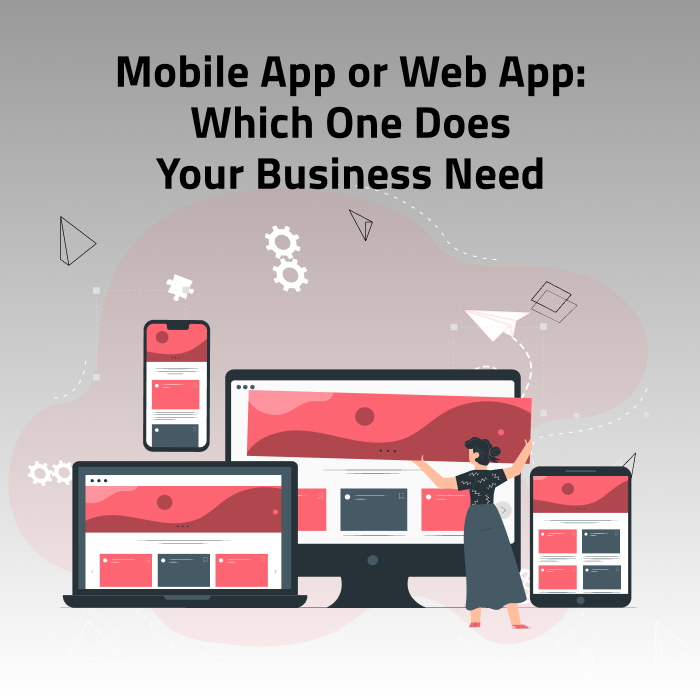
A web app or a mobile app? Which one does your business actually needs?
Having an app is no longer a luxury or an extra step. In fact, it's an essential part of this technology-driven world. Before taking any action, an important question should be asked. Should you build a mobile or web app? In this blog post, we'll talk about the difference between both solutions, and we'll help you understand which one to choose from a business perspective.
Mobile app development and web app, what's the difference?
Simply, a mobile app is downloadable on mobile phones either IOS or Android. Just like any app we download and consume on a daily basis.
On the other hand, a web app works through a web browser just like a website. You don't download it, you just access it through a browser like chrome, safari, or any other.
Determine your business goal
Before getting into any action, it's important to determine the following
-Your goal or what you're trying to achieve
-Who are your target audience or users
-The experience you want to offer your users
When should you use a mobile app?
The following situations or cases will help you understand where mobile apps is your right option:
1. Your aim is building and increasing loyalty:
If your mobile app's main aim is through repeated users, then you want to increase user loyalty.
An example for this goal could be a fitness app or a delivery service
You can send push notifications, offer loyalty programs, and give a smooth user experience.
2. You Need Offline Access
Does your app need to work without the internet? Mobile apps can store data locally. This is great for travel, productivity, or educational tools.
3. You want to achieve long-term partnership
If this is your goal then you need a mobile app that helps you build a deep experience with users.
4. You’re Targeting Millennials or Gen Z
Younger audiences spend more time on mobile apps than websites. If they’re your primary market, meeting them where they are is what your business needs to do.
When does your business need a web app?
The following situations or cases will help you understand where web apps is your right option:
1. You’re Just Starting Out
If you’re testing an idea or launching your MVP (minimum viable product), start small. Web apps are faster and cheaper to build and update. You can test your concept before putting resources with a mobile app.
2. You Want to Be Accessible on All Devices
With a web app, anyone with a browser can access it through a phone, tablet, or desktop. No downloads or storage limits required.
3. Your Users Are Mostly on Desktop
If your target audience uses your platform while working (like B2B tools or project management software), a web app is likely a better fit.
4. You Have Limited Budget or Tight Timelines
Mobile apps often require two versions (iOS and Android) plus ongoing updates and app store approvals. Web apps are easier to launch and manage with fewer costs.
Here is another recommendation: do both
Many businesses eventually need both. A web app can be your starting point because it's very simple, cost-effective, and widely accessible.
As your business grows, you can invest in a mobile app to offer more features and build deeper engagement.
Conclusion:
In conclusion, it's all about your business nature, goal, and audience or users
If you’re unsure, start with a web app and gather real data. That way, your next move whether it’s expanding to a mobile app or enhancing your web experience, will be based on customer behavior.
Your app should solve a problem and create value. Whether mobile or web, the best app is the one your customers actually use and love.
